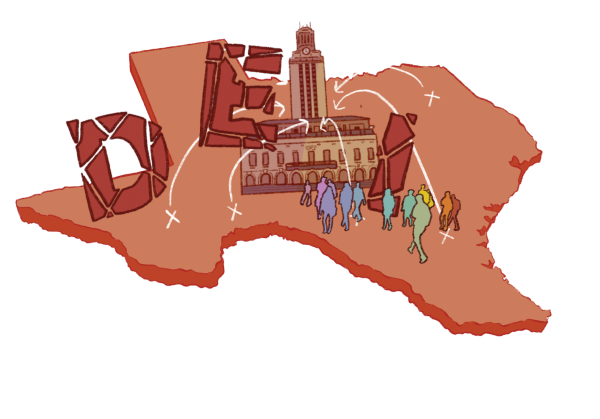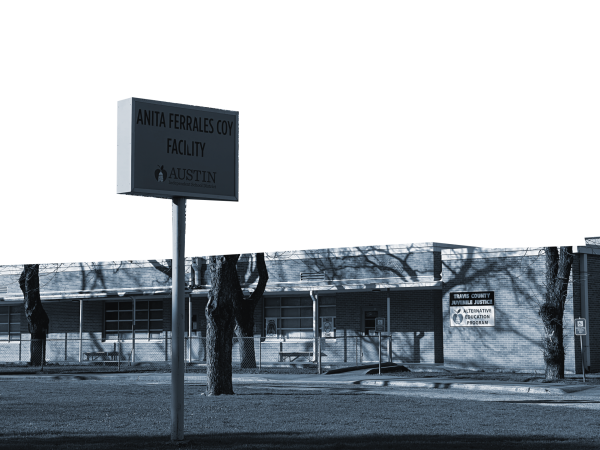Things Your Textbook Didn’t Teach You: Black Representation and Portrayal in Education

April 28, 2020
In Texas social studies classes, students are taught about slavery and the civil rights movement from a district-approved textbook. However, according to a recent study by Teachers Tolerance in 2019, these books don’t always get the facts right.
The study proved that most educators focus on teaching their students about segregation, slavery and other forms of oppression of black people. Teachers Tolerance also reported that having a curriculum about black history that is centered around the negative and traumatic struggles that black people have gone through can cause students to have a narrow mindset about racism. Bavu Blakes, a Cultural Proficiency and Inclusiveness Specialist for AISD, warns of the dangers of teaching students false information about the inequality of races and the development of black people as the inferior race.
“I think that the education system has been very hit or miss with this approach to history,” Blakes said. “If you are just following a botched curriculum or textbook, then typically you are teaching a very narrow perspective, but the huge opportunity and the beauty of the subject of history – and even more so social studies – is that there are concepts that are important to study in history.”
Georgina Perez, the vice-chair of the Texas Board of Education, said that the biggest issue of teaching from the textbook is that often the writers and editors of the book have omitted facts to influence the information students are getting. According to Perez, whitewashing, or the act of deliberately covering up or glossing over unpleasant facts about a person or organization, is especially dangerous when educating students on black history and can give them a preconceived notion of the importance of white people in society.
“In my opinion, whitewashing is just as malicious as erasing,” Perez said. “Both equate to the rewriting of history to absolve the author’s inheritance and/or perceived guilt. Whitewashing rewrites history to ensure the authors are the heroes, the good guys, or the saviors. The result, however, is an unachievable legacy for one group and a loss of identity for the other.”
According to Blakes, black history has been censored and influenced by the education system to where students come out of high school not knowing enough about the cultural and racial dynamics of the world around them. In the United States alone, black people make up over one-fifth of the population yet they still face social and political challenges.
“It’s impossible to cover the history of man in the world or the US or in Texas without the presence of black people being integral,” Blakes said.
Natasha Harper Madison, a city council member for Austin, explained that sometimes the root of the problem lies with people’s guilt. Madison said that teaching about a sensitive topic can sometimes cause even teachers to feel uncomfortable, which closes the opportunity for discussion among students.
“Black history is a secondary thought, if not tertiary, or not a thought at all, for many people,” Madison said. “Oftentimes because people are so hesitant, by way of internalized guilt or general discomfort, to address and discuss the history of the transatlantic slave trade that brought enslaved African people to the Americas that they disregard the discussion altogether.”
It is not only Texas that has struggled with teaching students about the percentage of black people and those other ethnicities in comparison to the rest of the world, according to Blakes. While most colleges in the US are comprised of nearly 50% of white students, white people make up less than 20% of the world population.
“If you add up all the white people on earth including the ones in Europe, the US and all over the world you wouldn’t even make it to 15%,” Blakes said.
According to Madison, the people who are most affected by the omission of history in their curriculum are black students. Every student needs to be able to connect with the history they are learning or else major cultural problems could arise from students not knowing about the truth of the past.
“The dangers of students not learning accurate history are unmeasurable and long-lasting,” Madison said. “African American students need to know who they are, where they come from, what people who look like them have experienced, continue to experience and how we have and continue to influence the country.”
Blakes said that he has hope for the future of the education of students. He said that all social studies classes have a large impact on the students who take them and that it is important to give students the truth.
“I think social studies has the potential to be the center of any curriculum,” Blakes said. “It’s cool that there’s still a huge opportunity and a lot of untapped potential in terms of ways to center the learner and center the students, their perspectives, their interests, their identities to make social studies extremely awesome and impactful.”
The prejudice of the past still affects American society today, according to Blakes. While Perez mentioned that the state board has easily adopted a class about American History, Madison believes that there is more to be done with the issue of history textbooks.
“The only remedy is to bring more progressive voices to the process of selecting textbooks and creating curriculum,” Madison said.









